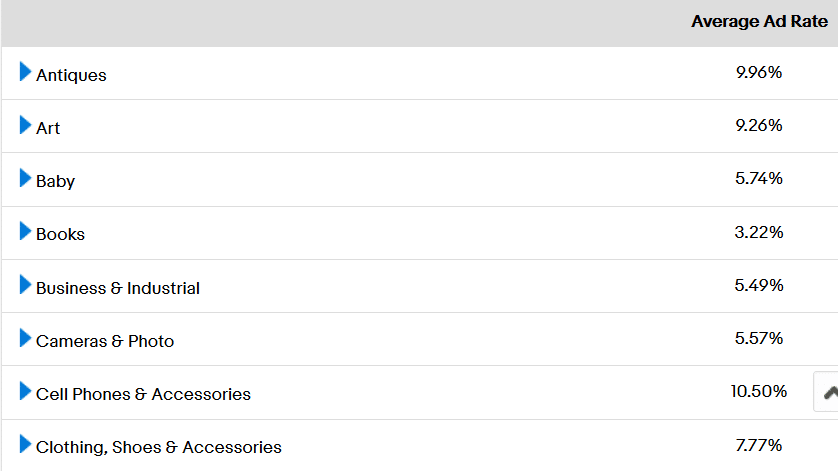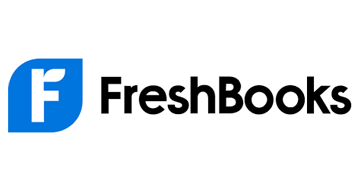eBay Promoted Listings is a pretty simple advertising scheme.
You just choose which items to promote, and how much of the sale price you are willing to pay. eBay then boosts your items from their normal positions in the search results to the four top spots, or a variety of placements lower down in the results.
If a buyer clicks on a promoted item and goes on to buy it, you pay eBay the percentage you set, in addition to the usual final value fee. If the item does not sell, you pay nothing.
Despite its simplicity, there’s still a lot to think about with eBay Promoted Listings. How do you choose which items to promote? How much should you pay? Should you promote them all the time or just sometimes? When should you adjust the amount you’re paying?
Before we move on to the most asked questions regarding eBay’s promoted listings, we want to give you a tip to increase your organic traffic and decrease your need for promoting your items. SE Ranking is a simple all-in-one SEO toolset that can help you grow your eCommerce. You can find everything you need to improve your website’s SEO and get more traffic. Click the link below to find out more about SE Ranking.

Scale Your Business with SE Ranking!
Here’s the top ten questions we hear from sellers about Promoted Listings, and how to make sure you get the most out of every extra penny you give to eBay.
How much does eBay Promoted Listings cost?
You choose your own percentage rate for each listing, so you will never pay more than that. That makes it easy to control the cost of Promoted Listings, in comparison to cost-per-click programs with variable pricing like Google Ads or Amazon Sponsored Products.
But to be successful – to actually get your item boosted to the top of the search results – you will have to compete against all the other sellers with similar items who are using Promoted Listings.
To help answer this question, eBay provide average ad rates, updated weekly, across 32 main categories and hundreds of subcategories.

The typical range is 5-10% but there are exceptions reaching as low as 2% and as high as 18%. However, despite the level of detail, these are still just category averages. The amount you need to pay to promote your specific items can be completely different to the category rates shown.
To find the real cost, and avoid overpaying, you need to find the level yourself. Start with a low percentage, even 1%, and see how your items sell. If there are no additional sales, increase it to 2%. Keep going in small increments, until you see a spike in sales.
The short answer, unfortunately, is that it’s trial and error for each unique listing.
| Our tip: Regardless of the category, you need to stay organized to grow your eCommerce business. The traditional way of managing your work with emails and spreadsheets is no longer enough. You need something that can grow with your business. Monday.com is the CRM solution for online sellers that helps you get more done in less time. The customizable workflows make it easy to create and manage tasks, projects, and appointments for your team. Try monday.com free forever plan to see what it can do for your business. |

Try Monday.com for free today!
How do I know if I am paying more than I need to?
There is no simple way to tell if you have set your Promoted Listings rate too high. eBay won’t object to taking a larger cut of your sale. They won’t tell you if you’re paying too much. But it will eat into your profit margin and begin to impact your business.
So, you’ll need to experiment. It is best to start low and work up in increments, following the upward pattern of sales as you do so. That should always find the optimum rate.
But there are situations when you might end up overpaying, for example:
- You need to give sales a quick boost, so go straight in with a high bid.
- You build up slowly and reach a stable level, but the competition drops away over time.
If you suspect that you are paying more than you need to, slowly decrease the percentage to see if you can make the same volume of sales at a lower ad rate.
How do you know if a rate you set a while ago, by slowly building it up, is now higher than it needs to be? Unfortunately, you don’t. You just have to periodically try nudging rates down to see if there’s an effect on sales. Once again, it’s trial and error.
| Our tip: Keep track of your business numbers with ease. Accounting is important, especially when you’re selling in different countries. Freshbooks helps you track expenses, customize invoices, run reports, and everything else all from one place. You can try Freshbooks for free for 30 days. Click the link below and sign-up today! |

Try Freshbooks 30 days free trial Now !
eBay already charge a final value fee, why should I pay even more?
Yes, there are already fees to sell on eBay. There’s listing fees, final value fees and PayPal fees on top of that. Many critics see Promoted Listings as just another way that eBay can profit from small businesses who are already struggling to survive.
There may be some truth to that. eBay is a publicly-traded company and their objective is to make as much profit as possible for their shareholders.
But you can also see Promoted Listings as a marketing tool and a great opportunity to exploit. If your listings are not ranking highly, and you can afford to pay a few extra percent, it gives you a big leg up in the search results.
If you were having a similar problem with sales on your own website, it wouldn’t seem strange to pay for additional marketing or advertising to boost sales. Promoted Listings is the same. It’s just a feature provided by eBay to boost your sales and get your products seen by more people.
There is no cost-per-click, only per-sale, and you can set the commission percentage as low as you need. eBay Promoted Listings is a tool you can use to maximize profits and grow your business, and that goes for eBay too.
Won’t Promoted Listings eat into my profits?
It is vital to know the limitations of your business and be meticulous with your budgeting and cost control. If you increase your Promoted Listings percentage just because other sellers are beating you, this will undoubtedly diminish your profits. There will always be a bigger fish, with a bigger budget to knock you out of the water.
So, tailor your Promoted Listings to your own business objectives and margins. Play to your strengths, leverage your assets and be competitive within reason. For some listings, increasing your percentage might do very little in terms of sales. A lower ad rate, or none at all, may be just right for those products.
It really depends on the product itself, how in demand it is, and whether or not the listing can be optimized in other areas. You should also have a good grasp of your item’s sell-through rate (conversion rate) prior to promoting the listing, so you can analyze how it performs over time. In order to help you to calculate your expenses, we recommend you to take a look at our new Business Calculators page.
Which items should I use Promoted Listings on?
When it comes to deciding which items to promote you need to think tactically. There will be certain items which present themselves naturally, and others which require more consideration.
Promoted Listings can be a good fit for:
- New product lines.
- New listing ideas such as kits and variations.
- Seasonal products.
- Liquidating old product lines.
- Products that are already selling well.
By promoting new products and product combinations, you can establish a positive sales history early on, that helps with your organic Best Match ranking as well. You can also test the market and make iterative changes more quickly. An ordinary, non-promoted listing might struggle to gain a foothold in the search results, and provide too little data to judge its performance properly.
Seasonal products are particularly important to promote. Items that only sell in summer, or on holidays like Halloween, for example, can’t be left to languish in the search results. When the season or holiday has passed, the value will suddenly drop and you’ll have to store them until next year or liquidate the stock at a potential loss.
More generally, if you have old lines that you need to liquidate to make space for newer products, Promoted Listings can help them sell quickly. In this situation, you may value your warehouse space more than your profit margin, and start with a relatively high ad rate even if it means you suffer a net loss on those products.
Bestselling products are an interesting case, because you are likely to pay extra fees for sales that you would have made anyway. This is covered in more detail in question 7.
What kind of items are not right for Promoted Listings?
Promoted Listings are not usually a good fit for:
- Rare, collectible or unique items
- Listings with a weak sales history
Buyers of collectible and unique items usually know exactly what they want, and will spend a lot of time searching and comparing the listings they find. There is unlikely to be a benefit from boosting a listing to the top of the search results, if it will be found anyway. Also, auction-format listings, which are still popular for collectibles, are not eligible to be promoted.
Old listings that have failed to generate many sales are not good candidates for Promoted Listings. It is tempting to try to use Promoted Listings to inject new life into under-performing items, but these are unlikely to gain additional sales from the boost in visibility. It could be that the product is not in demand, or the listing is of poor quality, or a competitor has a better price or shipping rate.
While it can’t hurt to try Promoted Listings on these items, it makes sense to look at the more fundamental problems first.
Why use Promoted Listings for bestselling products?
eBay recommends that sellers use Promoted Listings to boost sales of products that are already bestsellers. There is a reasonable argument for that, as Promoted Listings are often effective at increasing sales of products that are already selling pretty well.
There is also a good argument that a product already selling well does not need the additional boost, and you will give away precious profit margin when you don’t have to.
The only way to reconcile these two points of view, is to try Promoted Listings for a time so you can calculate the sales and profit you will make, both with and without the additional advertising.
You might have a lower profit per unit with Promoted Listings, but the higher sales velocity could make you more profit in total per week. In that case, it might make sense to give up some margin for more sales and higher profit overall (if you have any margin to spare, of course!)
You will also need to consider your ability to replenish the product when stocks run low. It’s not a good idea to give up margin if the sales volume will be restricted anyway, due to restocking difficulties.
How important is sell-through rate for Promoted Listings?
With Promoted Listings, eBay does not simply choose the the two listings with the highest ad rate to boost up the search results:
In addition to looking at a seller’s set ad rate, other factors are also considered, such as relevancy and how well an item is selling at the time the ad rate is set.
This is backed up by feedback from sellers, that the items which benefit most from Promoted Listings are those which already have a high sell-through rate.
New items, with no sales history at all, can also benefit. But existing items with a poor sell-through rate are unlikely to do well.
This might feel a little unfair and circular. Sellers often want to use advertising to “fix” their under-performing listings, and don’t see the point in paying to promote listings that are already doing well.
But it might be worth paying to promote listings with a good conversion rate, but low traffic, and turn that good performance into a lot more sales.
What’s a good overall strategy for eBay Promoted Listings?
The right way to use Promoted Listings depends on your individual business. It’s unlikely you can guess exactly what will work from your existing organic sales data, so do your own experimentation, analyze the results, and make a decision based upon the facts.
With that said, here are some good general practices:
- Promote listings with a good sell-through rate but low traffic.
- Promote new items to provide traffic and establish a sales history.
- Consider promoting your bestsellers if it makes sense to sacrifice some profit margin for higher sales volume.
- Consider promoting seasonal products to kick off the season with good sales, or address any risk of overstocking.
- Consider promoting products you need to liquidate quickly.
- Optimize weak listings to improve the sell-through rate, before promoting them.
Whatever you decide, always have a logic and rationale for what you do. Follow the stats as time goes by, to check if you got it right or if the situation has changed.
Remember that you have to find the optimum ad rate yourself, usually by starting low and increasing it slowly. For lagging products or stock liquidation, you might decide to start high to overcome the weak sales history, then decrease the rate when (and if) sales pick up.
Promoted listings are just a marketing tool, they cannot improve your products, your seller feedback, returns rate or any other shortcoming of your seller account. Work on those before you pay for advertising.
Does eBay Promoted Listings really work?
The short answer? Yes.
Promoted Listings are a great tool for boosting your items in the search results, and can have a really positive impact on sales. Depending on how competitive your product category is, Promoted Listings may not secure as many additional sales as you hope, but it should still have an effect.
Unlike Amazon PPC ads or Google Ads, eBay Promoted Listings are not auction-based or keyword-targeted. It is by design a much simpler tool. You just set your ad rate and see what happens. But that doesn’t mean there’s no need for strategy.
You need to use it smartly. It’s not something to “set-and-forget”, or use as a crutch to make up for other problems, or you could end up in a loop of escalating fees and falling profits.
So, does it work? Yes. Does every Promoted Listing set the world on fire? No. But, given a tactical and thoughtful approach, Promoted Listings can really increase your sales and help turn your business around.
Thank you to Matthew Ferguson and Sadie Manboard of Emanaged for their help with this post. Emanaged works with retailers and brands, managing their presence on online marketplaces including eBay, Amazon and many others worldwide.

Ebay should'nt allow China sellers lie about there location. China sellers know local sellers have a posting time advantage. They say in titles, images, there description uk seller yo boost their sales. But when you look their negative feedback "took 1 month to arrive. Not from uk" .When you report to Ebay they do nothing about it. It bad experience ebay customers and it bad for local sellers too.
Certainly agree with you - this is an issue of globalisation and international trade expanding faster than legal and technical controls can keep up with. eBay do need to fix this, but I suspect they fear the drop in sales it could have. Some buyers happily wait a month if they save a penny. Its also unclear how eBay could completely control this too.
Yes, agreed. But from eBay's perspective, they want to be consumer focused. If buyers are proportionately happy to pay low fees and wait long lead times for these product, eBay is following the consumer's desires. In essence, that is what a Marketplace has to do to be successful.
They could control this with changes. The question is if they want to, and it is better for the every day consumer. My assumption is they are not sure it is, despite the challenges.
It is sadly a lot to do with money, but I guess that is true of all business. So long as buyers keep buying from these illegal low cost sellers, eBay has little reason to take action. Hence why I think a fix of this nature is more a legal challenge to our economic order, and the pace Globalisation and international trade has ran faster than the filters and means to control and regulate it effectively.
That I agree with 100% ! That is so unfair.